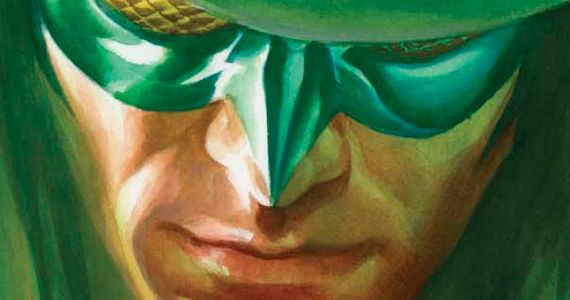Something that jumped out at me from last week's (must-read) interview with Mark Waid at Tom Spurgeon's Comics Reporter:
I think the system is, in terms of the way we've been doing business, the way we've been doing print business, stacked against them. Unless you're one of Diamond's premier publishers, you're not getting the discounts you really need to make a go of it. I love the fact that guys like Nicky at Dynamite and the IDW folks have managed, by my outside perspective hanging on by their fingernails, to continue to be a viable force. Or at least a voice out there that can make a living for people. Not a great living, but they can get paid for doing what they're doing. I find it kind of astonishing, I think "Oh, my God. How did some of those companies stay in business?" I haven't the foggiest notion how it is that Oni Press is still in business. [Spurgeon laughs] That's not a critical assessment of their company. That has nothing to do with their work. It's that I know how expensive this stuff is. I just don't know, and I'd be fascinated to find out.
The cost of comics -- like, the actual monetary expense of making and distributing these damn things -- is a source of constant curiosity/wonder/horror to me. I am arguably the furthest thing from business minded in some ways (read: most ways), and I admit to looking at sales figures and shaking my head at times, wondering how publishers managed to break even on certain titles, or even if they actually did.
(That math gets weirder, for me at least, when you consider the number of licensed titles out there that don't exactly set the sales charts alight. Is the meager profits offered by, say, Charmed enough to offset whatever license fee Zenescope inevitably has to pay the rights holder to be able to publish the comic in the first place? Does that kind of thing explain why Dynamite made the most out of the Green Hornet franchise when it first acquired it: Having six different titles for the price of one license as a way of minimizing the cost?)
That Marvel and DC (or Image or Dark Horse) get discounts from Diamond which smaller publishers -- which arguably need discounts more -- don't is one of those "Sure, I get the business logic, but still" moments for me; another in a line of signs that that the comic business isn't your friend and, yes, will break your heart if you let it.
It's tempting, at times, to look at digital as the savior of comics in the way that it removes certain barriers of entry from the whole process. You don't have to pay a printer to make a book exist, people say, as if that somehow makes the prospect of making digital comics almost entirely without cost whatsoever, the imaginary flowchart in their heads reading some variation of "Step 1: Make Comics, Step 2: Put Them Online, Step 3: Profit." That's not true, of course (There are the costs of actually making the comic, and preparing it to be published digitally, for one thing), even though you can certainly make an argument for the democratizing influence of the Internet on the medium.
For those wanting to work in print, though? Just like fame, it seems, that'll cost, and you'll start paying in sweat. And then, unlike fame, you'll move on to cash, and then credit, and then hopes and dreams and and and … Reading Waid's comment, I found myself nodding my head in agreement, thankful that publishers like Oni or IDW or Fantagraphics, or Top Shelf or [insert your favorite publisher here] have smart people to make the tough decisions on how to stay solvent and stay in business, even when their efforts aren't appreciated nearly enough. And I found myself wishing that there was a way to say thank you to the people behind the scenes who keep everything going, doing math and paying bills and making the deals and decisions that most of us never really think about. So, instead of rambling endlessly, I should just shut up and say this, I guess: Thank you, all, for making it possible that I could read and enjoy things that would have been impossible -- or, at least, unlikely -- otherwise.

